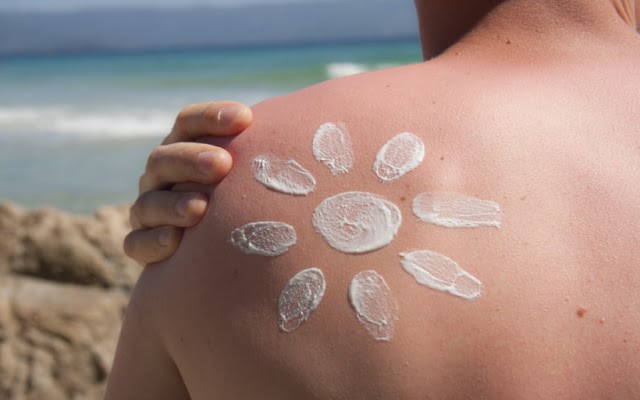Quck answer
Sunburns increase the risk of skin cancer. When the skin is exposed to excessive ultraviolet (UV) radiation from the sun, it damages the DNA in skin cells. This DNA damage can lead to mutations and the development of cancerous cells. Sunburns are particularly harmful because they indicate that the skin has been seriously damaged by UV radiation. Over time, accumulated sunburns can significantly increase the risk of developing skin cancer, such as melanoma. It is important to protect the skin from UV radiation by using sunscreen, wearing protective clothing, and seeking shade to reduce the risk of sunburn and skin cancer.

Yay! It’s summertime and you’ve finally arrived at the beach. You’re excited to build sand castles and play in the water. But before you do that, there’s something you must do. In fact, you’ve probably been reminded countless times: apply sunscreen!
If you’ve ever experienced a sunburn, you understand the importance of applying sunscreen before spending a significant amount of time outdoors. Although the Sun’s rays may feel pleasant while you’re soaking them up, that pleasure can quickly turn into pain if your skin is unprotected and gets burned by the Sun.
Most individuals have had a sunburn at least once. Many people have had multiple sunburns. When you get a sunburn, you definitely know it! Your skin becomes red and may even develop blisters. It’s tender and can be extremely painful. In fact, it can be quite bothersome when you move…and even when you’re not moving!
Many people enjoy basking in the Sun’s rays and letting them give their skin a golden brown hue. Many individuals strive to avoid sunburn while still achieving the desired tan they love to flaunt in the summer. However, that tanned skin comes with a price.
While many individuals appreciate the appearance of golden brown skin, the Sun’s ultraviolet rays that transform their skin from pale to tan also contribute to wrinkles, age spots, and other signs typically associated with aging. Even worse, tanned skin — whether from the Sun or a tanning booth — also increases the risk of developing skin cancer.
When you expose your skin to the Sun’s rays, also known as ultraviolet (UV) light, it damages your skin. Over time, it breaks down elastin, which are fibers in the skin. This causes your skin to lose its firmness and elasticity, both of which are indicators of aging.
Exposure to ultraviolet light can also make your skin more susceptible to bruising and tearing. Another risk is that ultraviolet rays can impair your skin’s natural immune function, which can lead to the formation of cancerous skin lesions.
Skin cancer is the most prevalent type of cancer in the United States. The number of skin cancer cases continues to rise each year. Skin cancer is the uncontrolled growth of abnormal skin cells, resulting in the development of a tumor.
The three types of skin cancer that have been connected to ultraviolet light exposure are basal cell carcinoma, squamous cell carcinoma, and melanoma. Basal cell and squamous cell cancers are less severe and fortunately account for about 95% of all skin cancers. When detected and treated early, these types are highly treatable.
On the other hand, melanoma is much more serious. Comprised of abnormal skin pigment cells called melanocytes, melanomas are responsible for three out of every four skin cancer deaths. If not promptly treated, melanoma can spread to other parts of the body and become challenging to control or treat.
The Sun’s ultraviolet radiation has been identified as the primary cause of skin cancer, and ultraviolet light from tanning beds is equally hazardous. Cumulative exposure to sunlight over the years typically leads to basal cell and squamous cell skin cancers. However, melanoma has been associated with severe sunburns experienced early in life.
Anyone has the potential to develop skin cancer. However, research has shown that individuals who are prone to sunburn, such as those with fair skin, light eyes, and blond or red hair, are at a significantly higher risk compared to those with darker skin. Other factors that increase the risk include outdoor work and living in a sunny climate.
Fortunately, there are measures you can take to reduce your risk of developing skin cancer. While it is impossible to reverse damage caused by the sun’s rays, the skin has the ability to repair itself to some extent. It is never too late to start taking good care of your skin!
As a general guideline, it is important to apply sunscreen to your skin when you anticipate prolonged sun exposure or exposure to UV rays. It is important to note that sunburn can occur even on cloudy days. Therefore, it is advisable to check the UV Index number and plan accordingly.
Medical professionals recommend using sunscreen with a sun protection factor (SPF) of at least 30, applying it at least 30 minutes before sun exposure, and reapplying every two hours. If you are sweating heavily or swimming, more frequent application of sunscreen is necessary.
Additionally, minimizing overall exposure to sunlight is beneficial, especially during peak hours of ultraviolet radiation (typically between 10 a.m. and 2 p.m.). Wearing protective clothing and sunglasses that block the sun’s rays whenever possible also helps. By taking proper care of your skin, it will continue to take care of you!
Give it a Try
We hope that today’s Wonder of the Day has emphasized the importance of skin care. Here are some activities you can try with a friend or family member:
Can the Sun Aid in Killing Germs?
What Exactly is a Solar Storm?
- Interested in learning more about the Sun? Explore these Wonders of the Day:





Leave a Reply